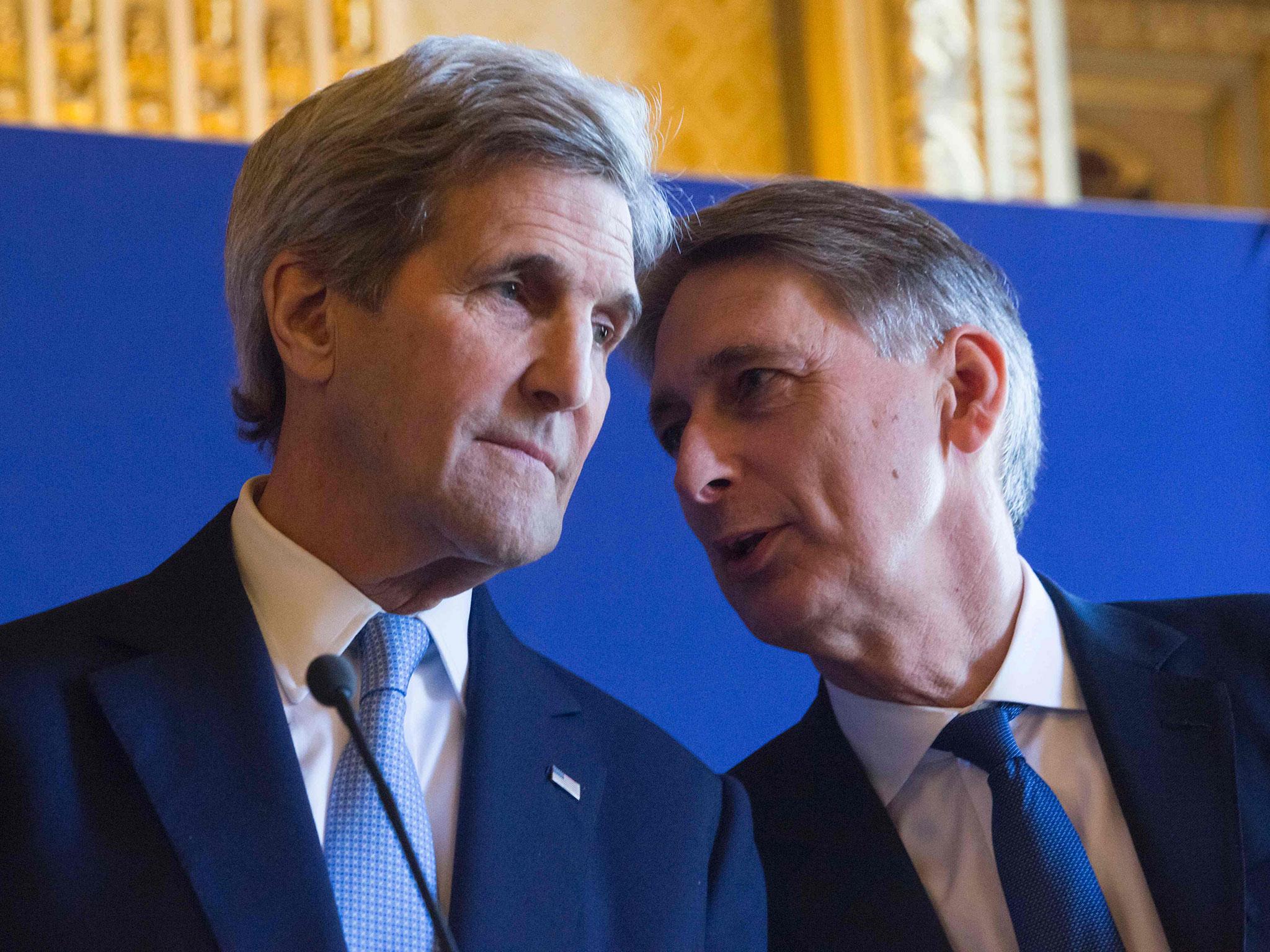Syria accused of 'disrupting' peace talks over Bashar al-Assad 'red line'
John Kerry warns Damascus against trying to 'act as a spoiler' with the role of Syria's President still a major stumbling block

Your support helps us to tell the story
From reproductive rights to climate change to Big Tech, The Independent is on the ground when the story is developing. Whether it's investigating the financials of Elon Musk's pro-Trump PAC or producing our latest documentary, 'The A Word', which shines a light on the American women fighting for reproductive rights, we know how important it is to parse out the facts from the messaging.
At such a critical moment in US history, we need reporters on the ground. Your donation allows us to keep sending journalists to speak to both sides of the story.
The Independent is trusted by Americans across the entire political spectrum. And unlike many other quality news outlets, we choose not to lock Americans out of our reporting and analysis with paywalls. We believe quality journalism should be available to everyone, paid for by those who can afford it.
Your support makes all the difference.The United States accused the Syrian government of trying to “disrupt” peace talks after the latter declared the departure of President Bashar al-Assad was a “red line” that was not open for discussion.
Speaking as the opposing delegations arrived in Geneva for a fresh round of negotiations due to begin today, the US Secretary of State, John Kerry, warned Damascus against trying to “act as a spoiler”. He called on Mr Assad’s backers, Russia and Iran, to ensure that the government was “living up” to what had been agreed.
The latest round of talks in Switzerland coincided with the fifth anniversary of the Syrian uprising, which began in March 2011 with peaceful protests but later descended into an armed conflict that has claimed at least a quarter of a million lives.
Five years on, the role of Mr Assad remains a central question – and a major stumbling block. On Saturday, the Syrian Foreign Minister, Waleed al-Muallem, attacked the UN’s Syria envoy, Staffan de Mistura, for proposing presidential and parliamentary elections within 18 months. He said talks would fail if the opposition had “delusions that they will take power in Geneva that they failed to take in battle”.
Arriving in the city, Salim al-Muslat, a spokesman for the official opposition delegation, said his team chose to attend the talks on the understanding that a transitional government would be high on the agenda. He said a transitional Syrian government “would not have a role, in that phase or any phase, for any criminal who has perpetrated crimes against the Syrian people, including Assad.”
The conflicting statements underline the huge challenge facing diplomats as they resume indirect talks at the Palais des Nations. The last round, in February, collapsed after the opposition said it could not negotiate while a government offensive pummelled rural Aleppo backed by Russian jets.
This time, they take place against the backdrop of an internationally agreed ceasefire that remains shaky but has defied expectations. A fall in the violence has enabled hundreds of activists to take to the streets to protest. It has also exposed and deepened fault lines among rebel groups.
Join our commenting forum
Join thought-provoking conversations, follow other Independent readers and see their replies
180Comments